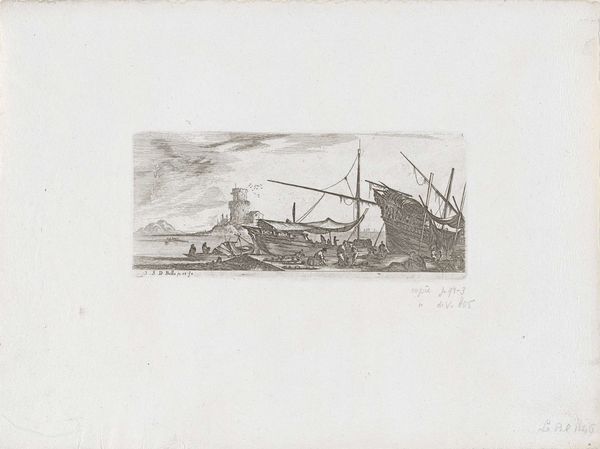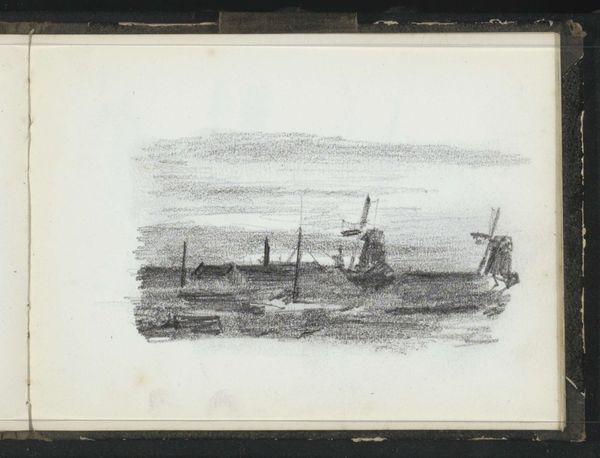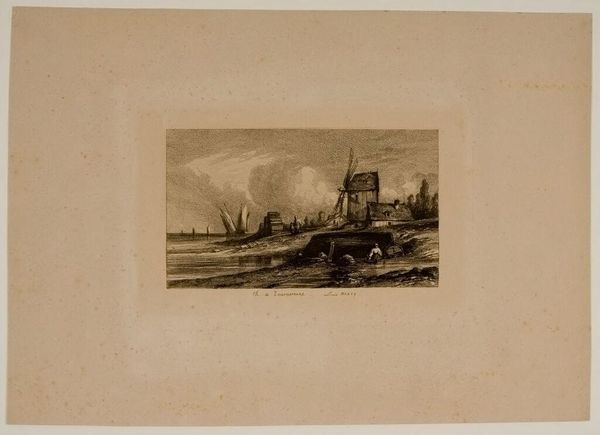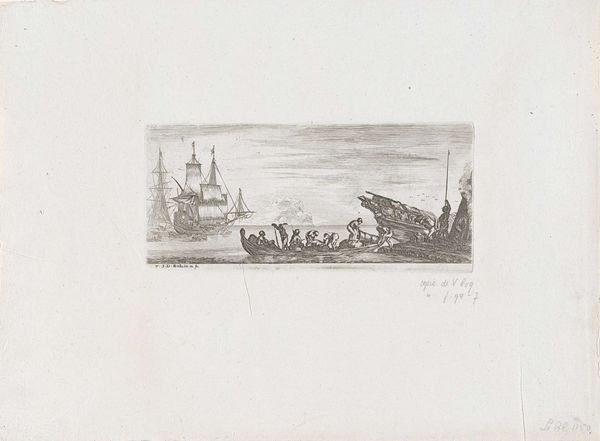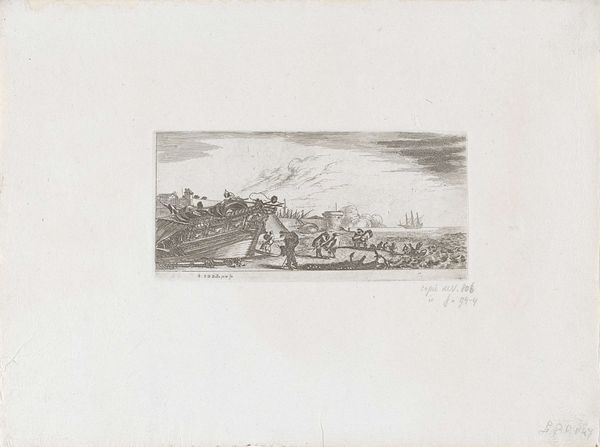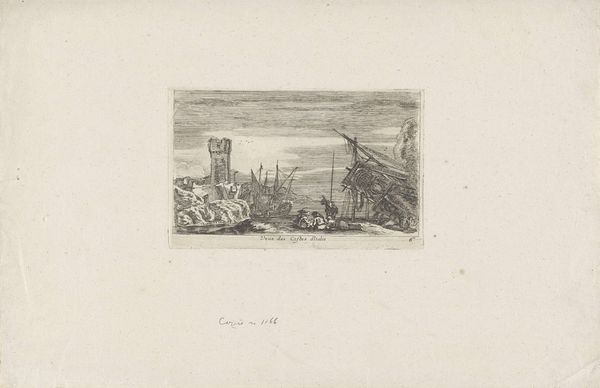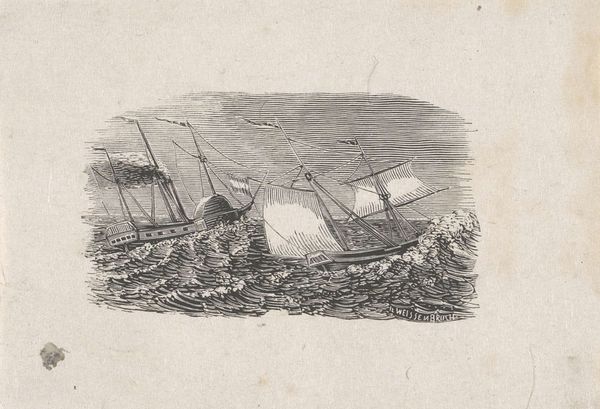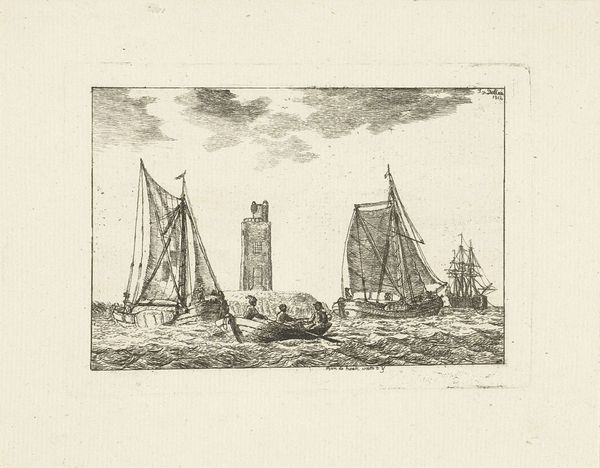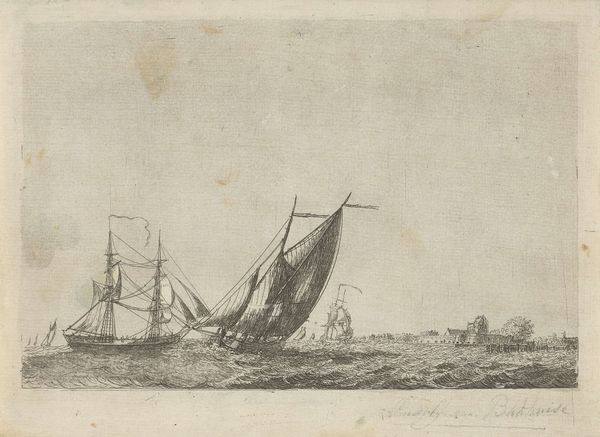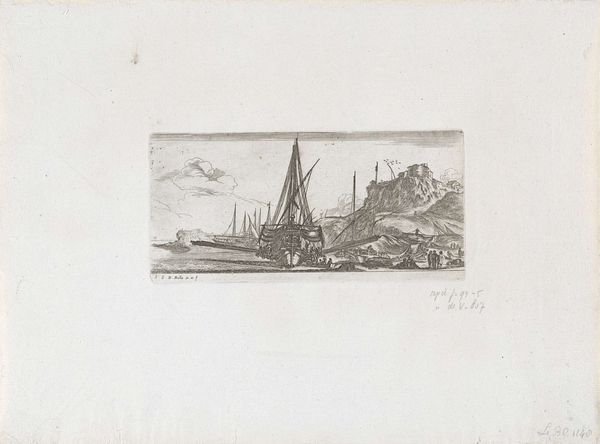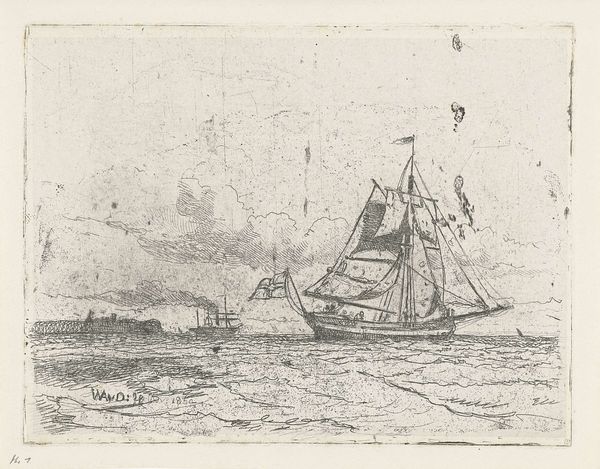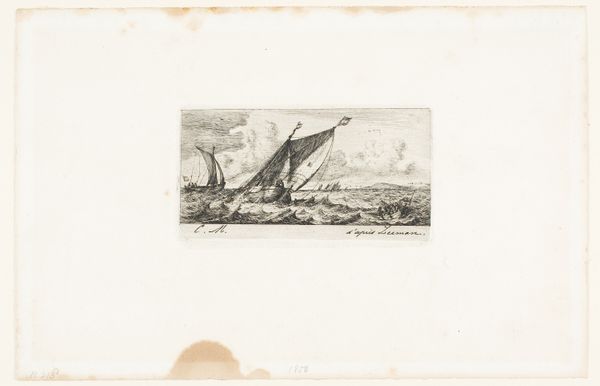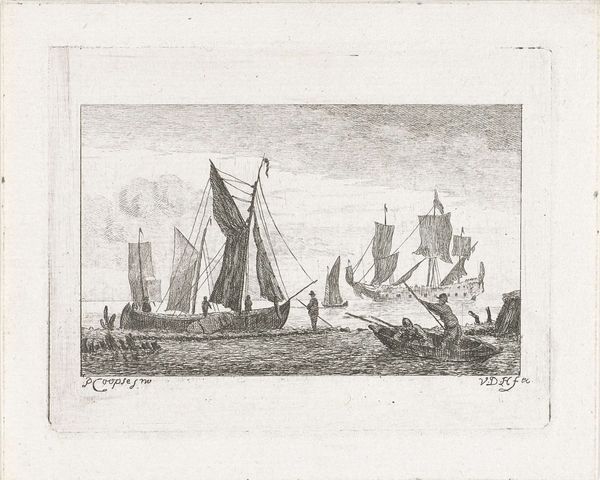
print, etching
#
baroque
# print
#
etching
#
figuration
#
line
#
cityscape
#
genre-painting
#
history-painting
Dimensions: height 79 mm, width 185 mm
Copyright: Rijks Museum: Open Domain
Editor: We're looking at "Zeeslag," a small etching by Stefano della Bella, created sometime between 1620 and 1664. It depicts a naval battle. I find the line work quite delicate, almost fragile, which seems at odds with the violent subject matter. What can you tell me about this depiction of naval conflict? Curator: It’s interesting how you noted that contrast. During the Baroque period, prints like these played a crucial role in shaping public perception of political events. "Zeeslag" – "Sea Battle" – wasn't just documenting a fight; it was participating in the construction of national identity and projecting power. Considering that, how does your understanding of the fragility and violence within the image change? Editor: So, the detail isn’t just decorative but also informational, like early propaganda? How was something like this consumed back then? Curator: Exactly. Prints were relatively accessible. They were distributed and collected, helping to cultivate a sense of shared national experience and pride. These images celebrated military victories and legitimized state power. Do you notice anything about the composition that might further amplify that message? Editor: I guess the detail is important; everything’s very clearly defined despite the small size. The crispness makes the battle seem precise, managed... heroic, almost, even with all the chaos. Curator: Precisely! It presents an idealized vision of warfare, sanitizing the harsh realities. Understanding the socio-political context, the print becomes less a neutral record and more an active participant in shaping historical narratives. And remember, patronage played a massive part, influencing which stories were told and how. Editor: That's really fascinating. I always considered prints as just smaller art pieces. It’s changed my perspective on how artworks actively shape history and national identity. Curator: Indeed! It highlights the critical role of images in the formation and dissemination of national narratives, making us question what’s being amplified, and what isn't. A key to approaching historical depictions of power!
Comments
No comments
Be the first to comment and join the conversation on the ultimate creative platform.
